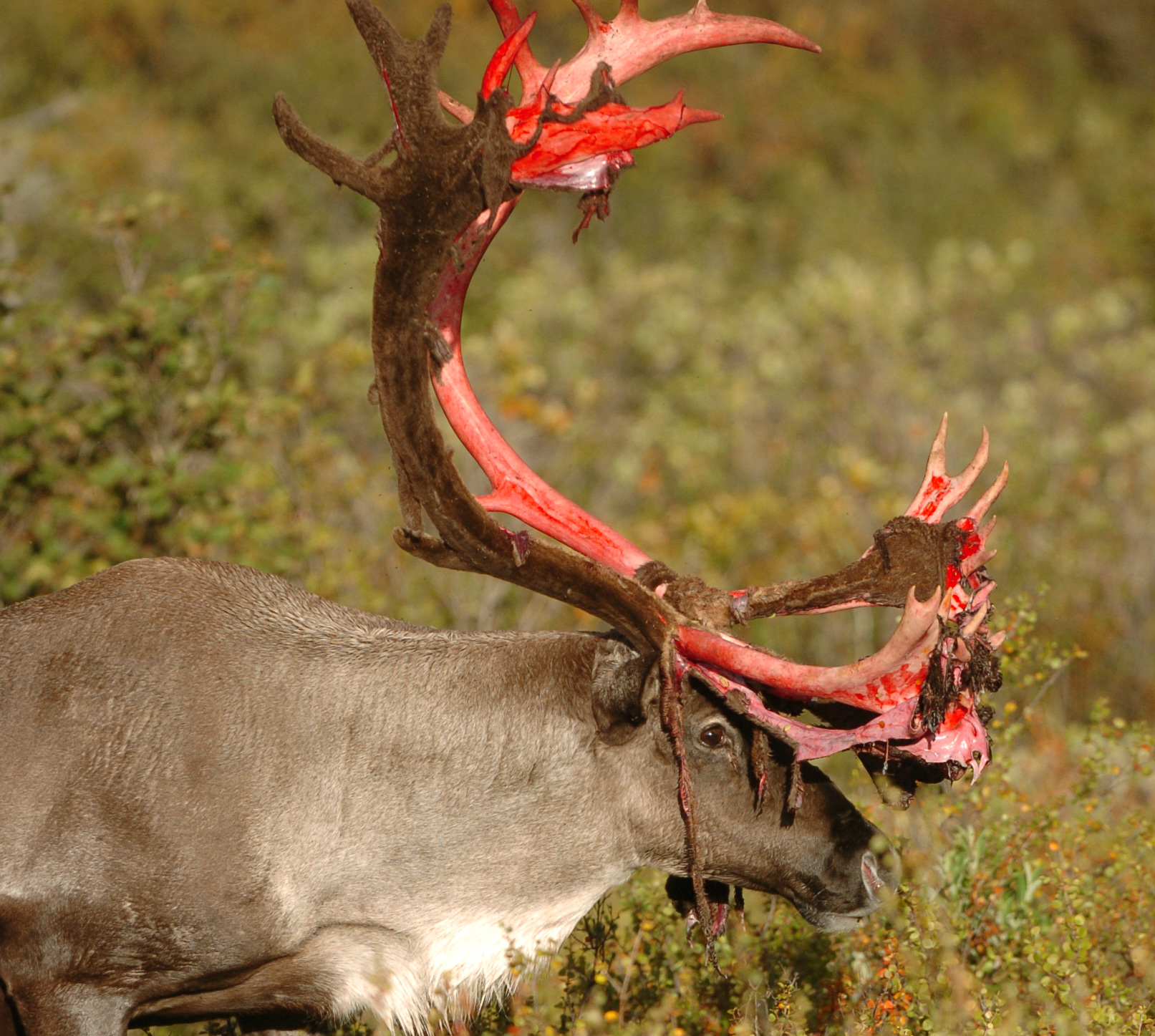Central Arctic caribou herd’s population dives
The size of another Alaska caribou herd has plummeted, leaving biologists with Alaska Department of Fish and Game concerned — and a bit flummoxed.
Since it peaked in 2010 at 70,000 animals, the size of the Central Arctic herd has fallen 69 percent — to 50,000 in 2013 and 22,000 this year. The herd often calves in and around Prudhoe Bay.
A late-arriving spring in 2013 that proved particularly deadly to adult females may have set the downturn in motion, Fish and Game’s Northeast Alaska wildlife biologist Beth Lenart noted in a press release. But she believes several factors may be contributing to the decline.
Among them is the prospect that some Central Arctic caribou may have joined the Porcupine or Teshekpuk herds when all three mingle during the post-calving and winter seasons.
The Central Arctic herd ranges throughout Game Management Unit 26B, which extends north from Atigun Pass in the Brooks Range to Prudhoe Bay and includes drainages of the Kuparuk, Itkillik, Shaviovik and Kavik rivers. It winters in a western region that straddles the tundra and the boreal forest.

The Central Arctic isn’t the only Alaska herd in trouble. The state’s biggest herd, the Western Arctic, has dropped from a high of 490,000 animals in 2003 to 201,000 today. State biologist Lincoln Parrett believes the herd has stabilized and may rebuild in coming years.
The size of caribou herds fluctuate regularly, sometimes dramatically. And while some Alaska herds are shrinking, others, notably the Nelchina herd in Interior Alaska, are growing. That herd numbered nearly 49,000 animals in July, larger than it’s been in more than two decades.
The decline of the Central Arctic herd comes despite some fairly encouraging signs, according to Fish and Game:
- Pregnancy rates that, while declining, are still considered fair to good.
- Calves checked in October were found to be in good physical condition.
- A adequate number of bulls were available for breeding.
Despite that, Fish and Game is warning hunters to expect a shorter season and lower bag limits next year. Lenart said biologists will recommend regulation changes to the Alaska Board of Game limiting the harvest of cows and cutting bag limits. The current season limit is five caribou, among the more liberal limits in Alaska.